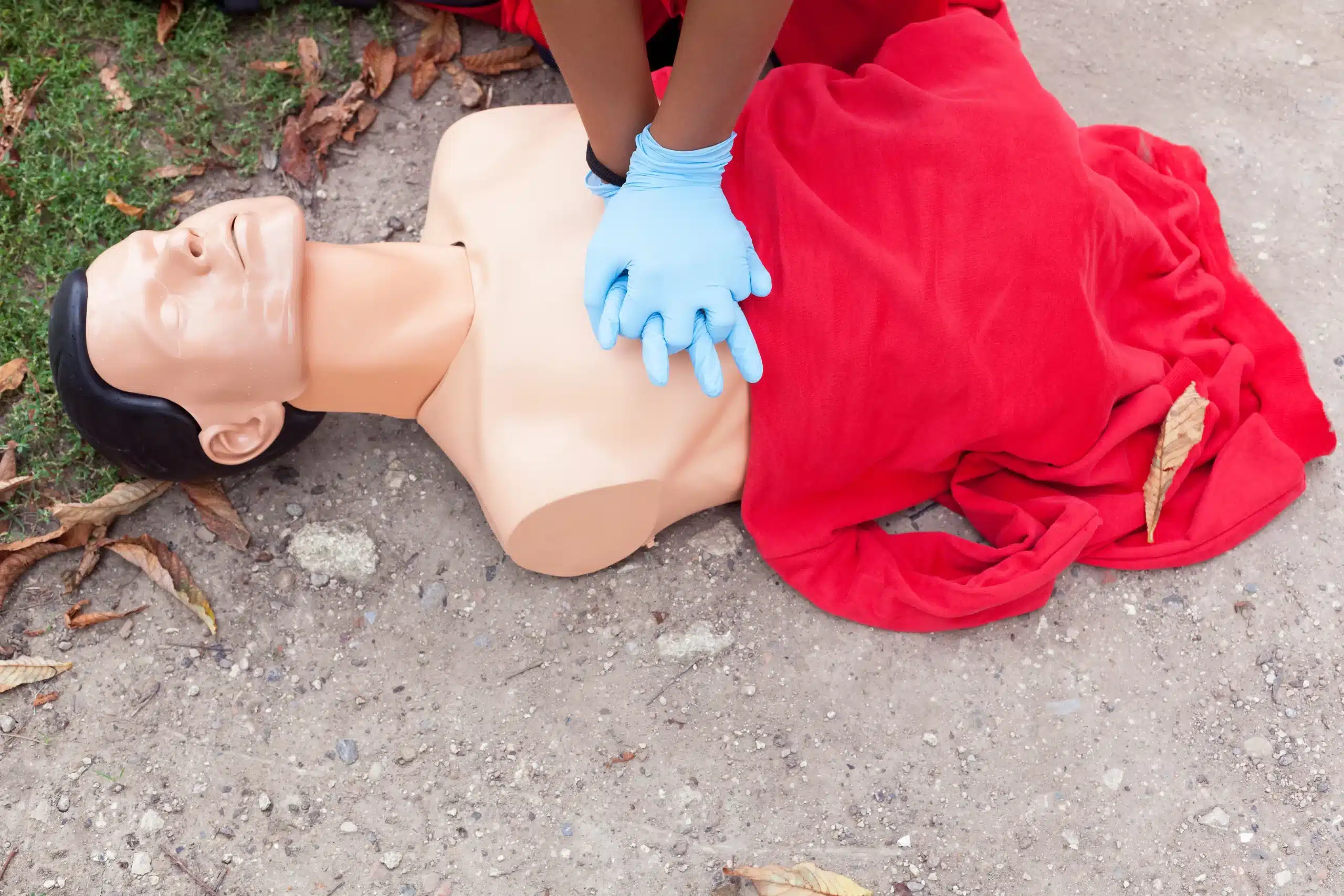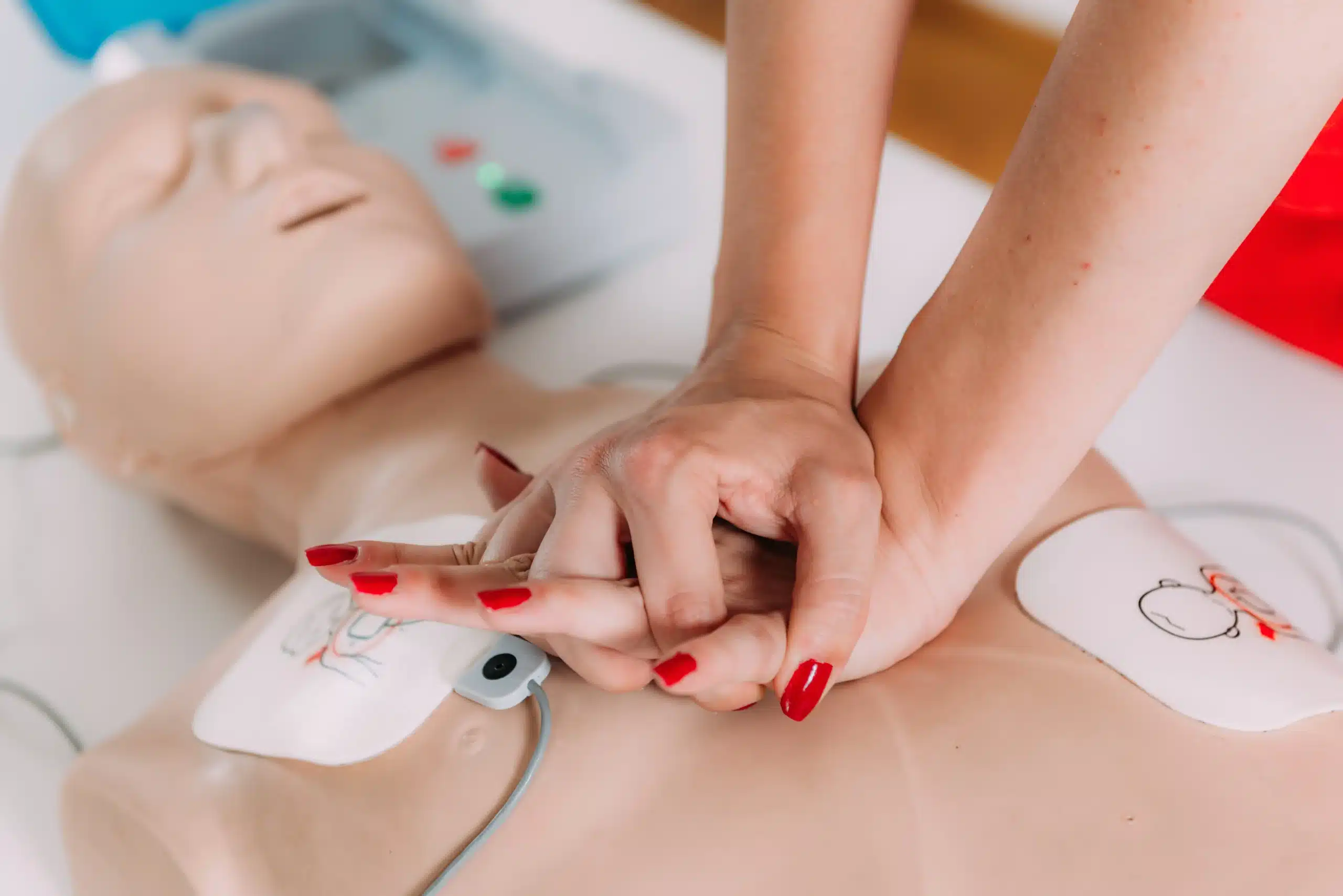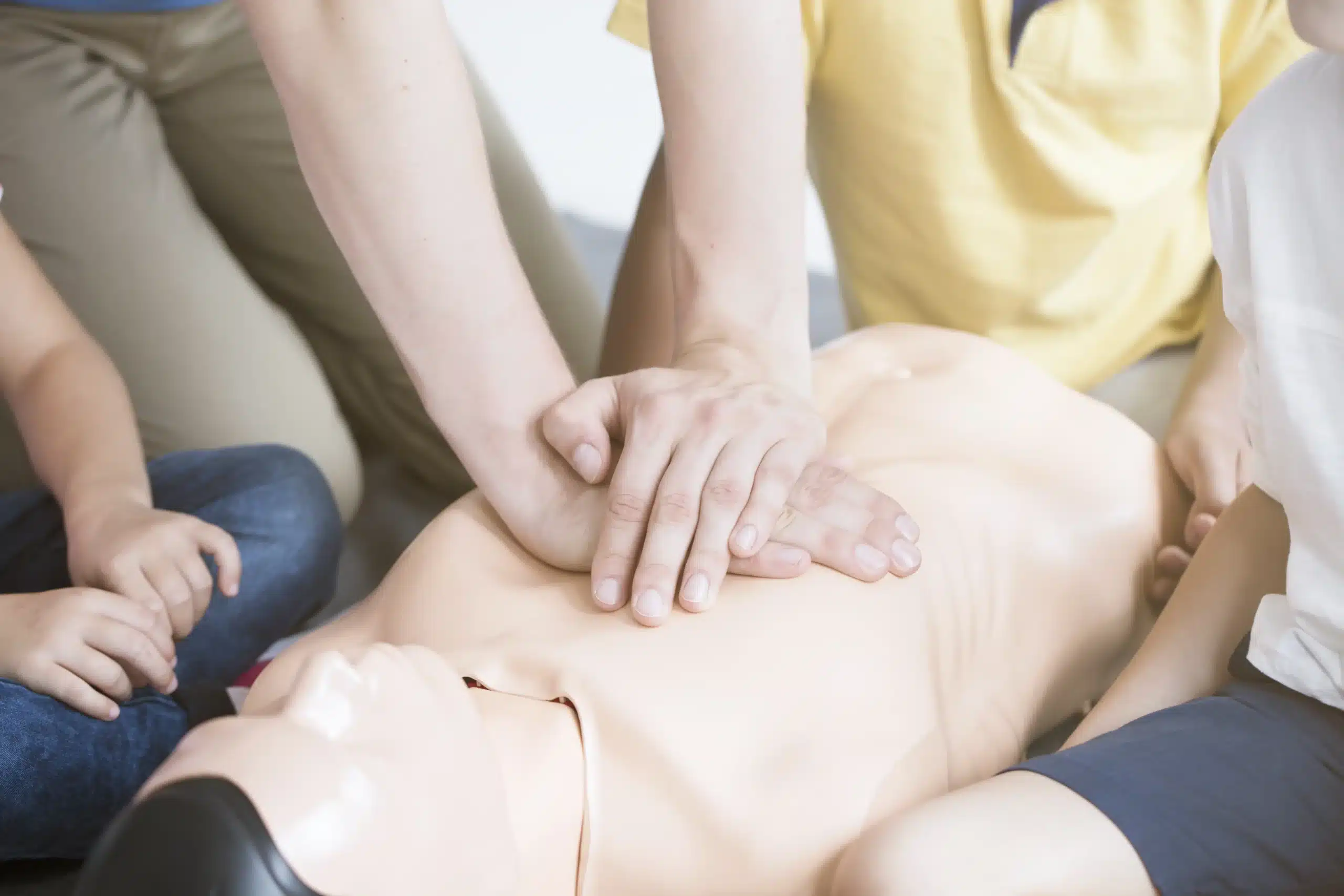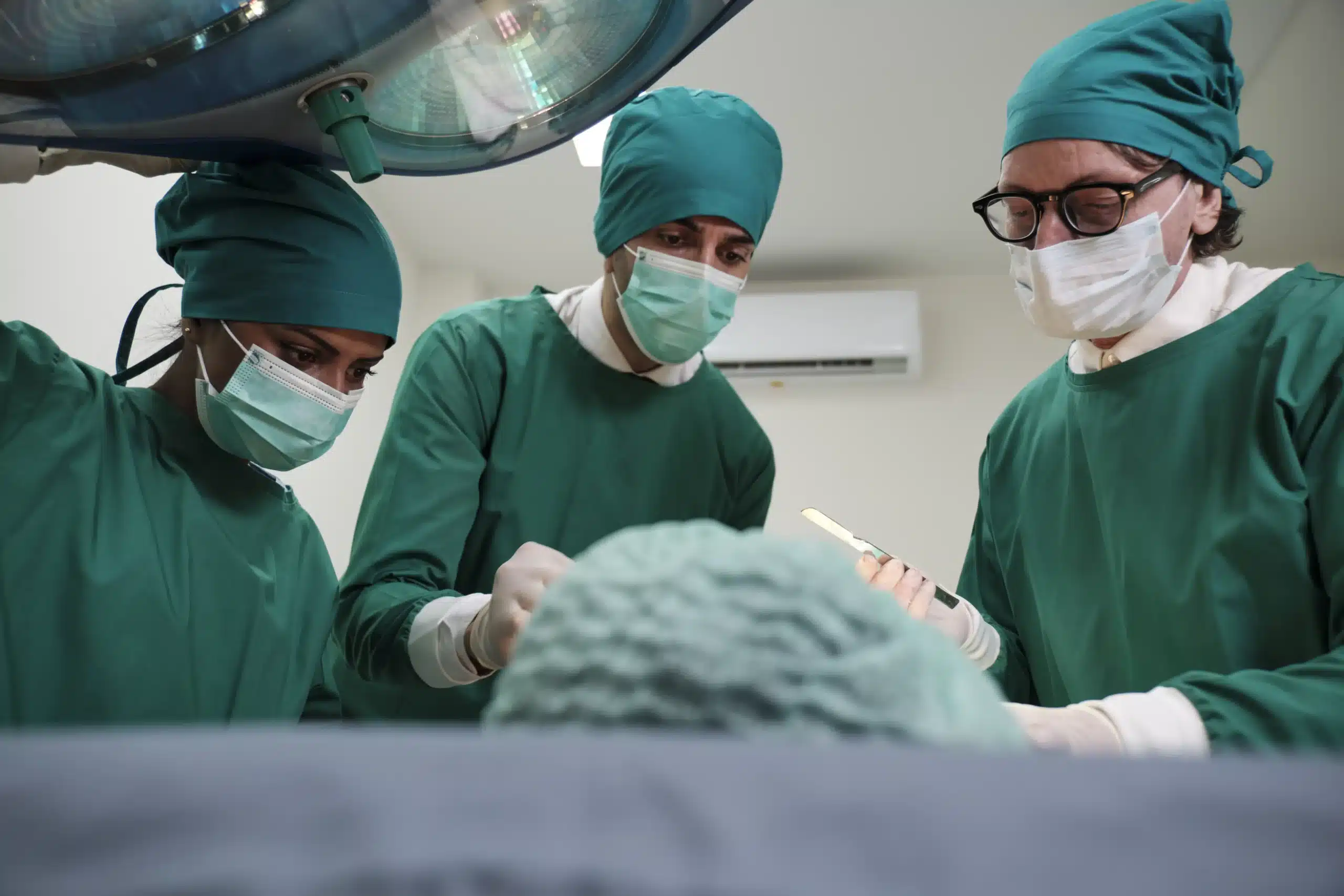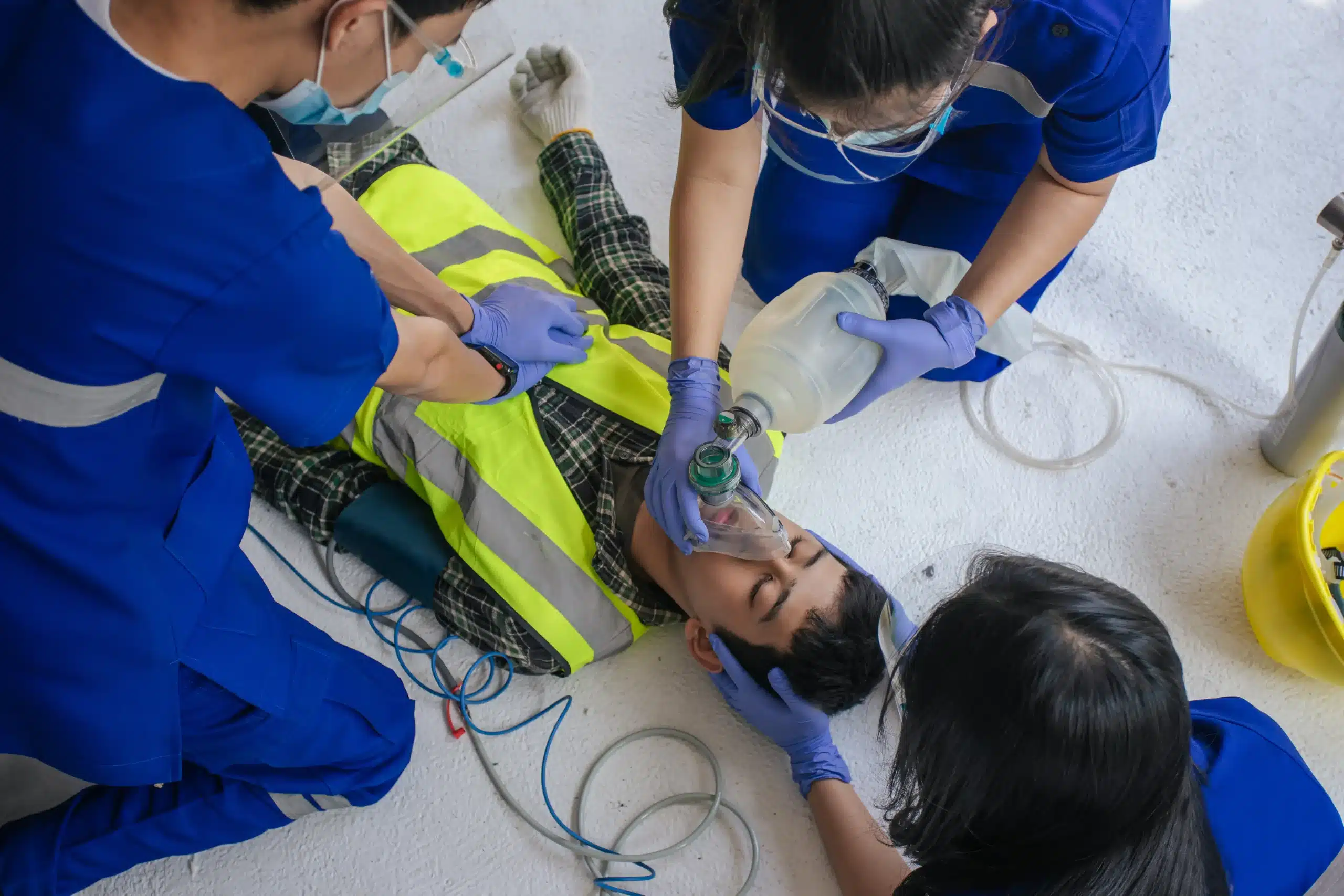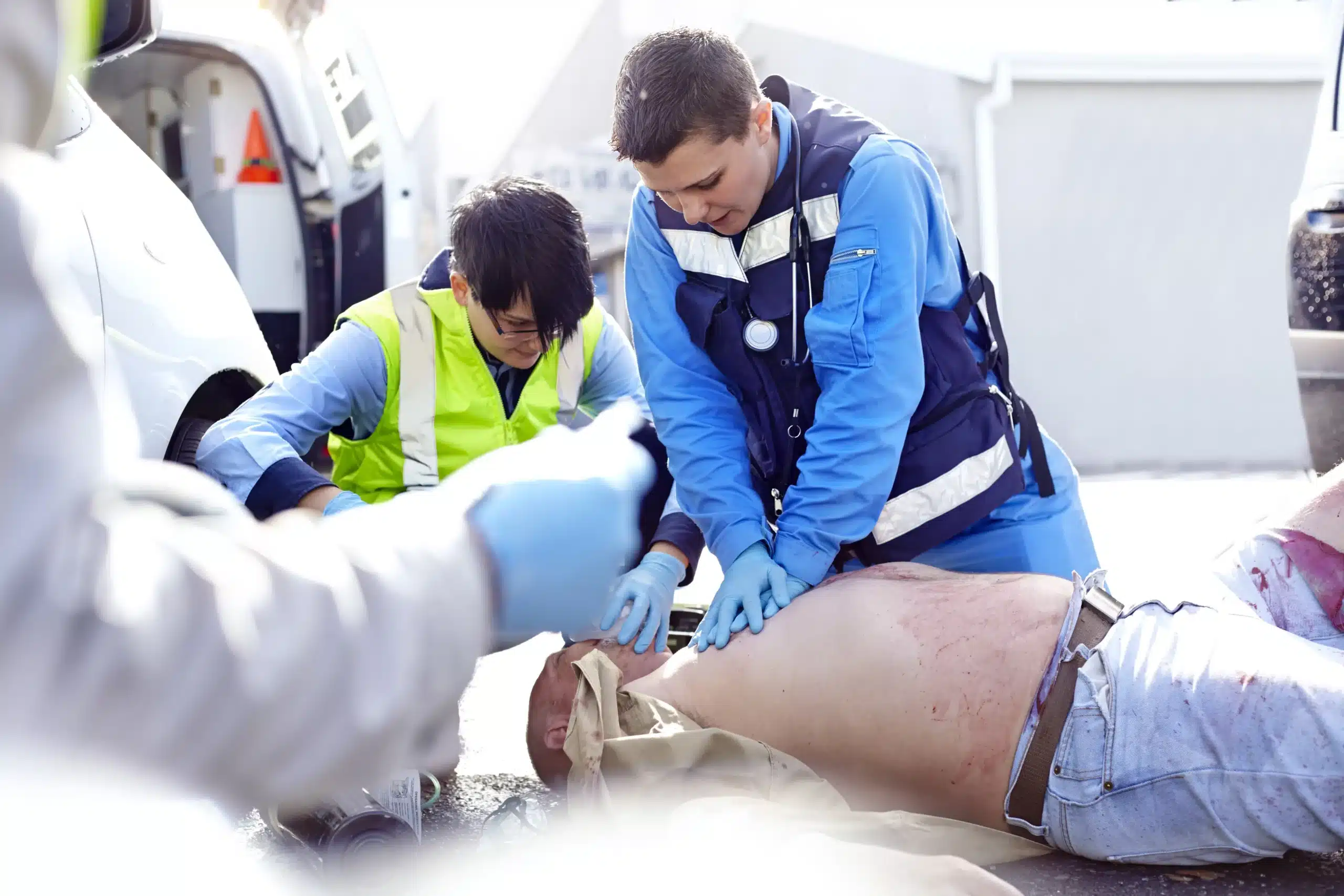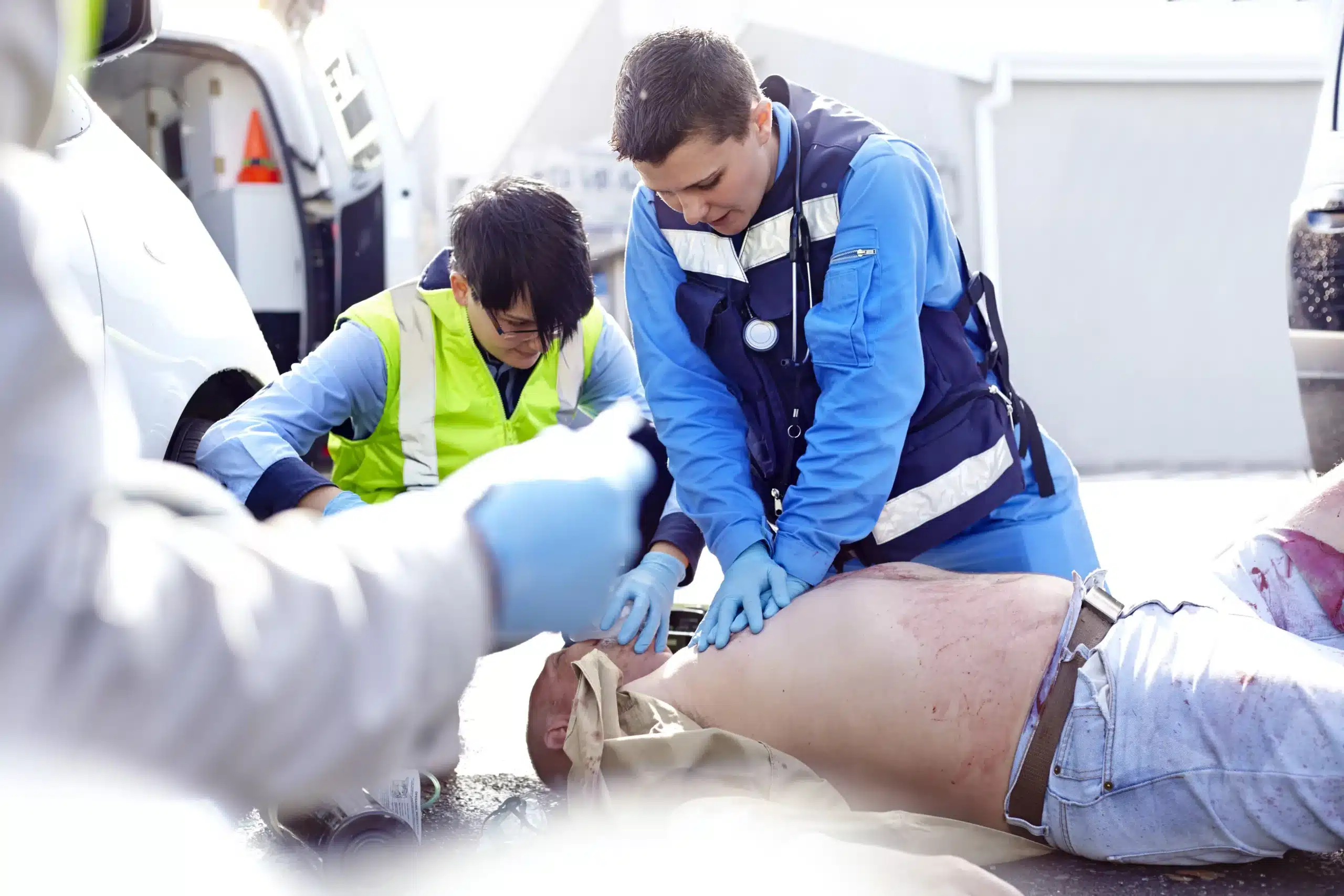Emergencies can happen anytime, anywhere. Would you know what to do? CPR and first-aid training in Union City empowers you to respond effectively when every second counts. This comprehensive guide explores the various CPR and first-aid training options available in Union City, catering to diverse needs and schedules. Whether you’re a healthcare professional seeking recertification, a parent wanting to protect your family, or simply a community-minded individual, we’ll help you find the perfect course to build your life-saving skills.
Key Takeaways
- Find the right CPR and first-aid training for your needs: Consider factors like your profession, required certifications (like BLS for healthcare providers), and preferred learning style (in-person, online, or blended) when selecting a course.
- Explore various CPR and first-aid certifications: From basic CPR and first aid to specialized certifications like pediatric CPR and AED use, understand the different options available and choose the one that aligns with your goals. Hayward CPR Classes offers a range of AHA-certified courses to meet diverse needs.
- Prioritize quality training and instructor experience: Look for certified instructors affiliated with reputable organizations like the AHA. Hands-on practice in smaller class settings is crucial for developing confidence and mastering essential techniques.
What is CPR and First-Aid Training in Union City?
CPR (Cardiopulmonary Resuscitation) and first-aid training equips you to handle emergencies effectively. CPR specifically addresses situations where someone is unconscious, not breathing, or only gasping—the signs of cardiac arrest. It combines chest compressions and rescue breaths to circulate oxygenated blood until paramedics arrive.
First aid covers a wider range of urgent care techniques. It includes treating injuries like cuts and burns, handling allergic reactions, and administering CPR. This training gives you the skills to provide immediate assistance in various situations, potentially saving lives and preventing further harm.
Several organizations in and around Union City offer comprehensive CPR and first-aid training. CPR Education prioritizes high-quality training to empower community members with these life-saving skills. Safety Training Seminars provides American Heart Association (AHA) certified courses, including CPR, BLS, ACLS, and PALS, ensuring participants receive recognized and effective training. For added convenience, In-Home CPR brings the training directly to your home or business. Hayward CPR Classes also serves the Union City area, offering a range of AHA-certified courses and group discounts. You can explore our course options and learn more about our group discounts.
Top CPR and First-Aid Training Providers in Union City
Finding the right CPR and first-aid training can feel overwhelming. To simplify your search, we’ve compiled a list of reputable providers in and around Union City. Review each option to determine which best fits your needs.
Hayward CPR Classes
Hayward CPR Classes is a woman-owned American Heart Association (AHA) Training Center offering a full range of courses. They provide everything from basic CPR and first aid certification to more advanced courses like BLS, ACLS, and PALS. Serving Hayward, Union City, and San Leandro, they also offer discounts for group classes, a great option for businesses and community groups. Learn more about their CPR and first-aid classes.
CPR Education
CPR Education offers CPR and first-aid training in and around Union City. They provide CPR certification for businesses, AHA courses, BLS for Healthcare Providers, pediatric CPR, and classes for both groups and individuals. This range of options makes them a flexible choice for various learning styles and group sizes.
Safety Training Seminars
Safety Training Seminars provides a variety of AHA-certified courses, including CPR, BLS, ACLS, PALS, and NRP certification in Union City and across Northern California. They also offer EMSA-approved Pediatric CPR and First Aid courses, a good fit for those working with children. Explore their CPR training options to find the right course for you.
In-Home CPR
In-Home CPR brings the training to you, offering first aid, CPR, and certification classes (BLS, ACLS) in Union City. They’ll travel to your home or business seven days a week, including evenings, and don’t require a minimum class size. This convenience makes them an excellent choice for busy schedules or those who prefer a more personalized learning environment. Learn more about their in-home training options.
CPR and First-Aid Certifications: What’s Available?
Knowing which CPR and First-Aid certification is right for you can feel overwhelming. This section breaks down the most common and recognized options available in Union City and beyond.
American Heart Association (AHA) Certifications
The American Heart Association (AHA) is a leading authority in CPR and first-aid training. AHA certifications are widely accepted and respected, known for their comprehensive and rigorous approach. They offer various courses, from Basic Life Support (BLS) for healthcare providers to Heartsaver courses for the general public. These certifications are often a requirement for healthcare professionals and those seeking jobs in healthcare settings. Hayward CPR Classes offers a variety of AHA-certified courses, ensuring you receive training that meets industry standards.
Red Cross Certifications
The American Red Cross also provides widely recognized CPR and first-aid training programs. Their certifications are accepted in many workplaces and community settings. The Red Cross offers a blended learning approach, combining online learning with in-person skills sessions. This flexible format can be a good option for busy schedules. While their programs are comprehensive, it’s essential to check specific requirements for your profession, as some may prefer AHA certification.
Other Recognized Certifications
Beyond the AHA and Red Cross, other reputable organizations offer CPR and first-aid certifications. These certifications might be industry-specific or tailored to particular needs. For example, some organizations offer specialized pediatric CPR or wilderness first-aid certification. When considering these options, research the certifying organization to ensure their curriculum aligns with established guidelines and is accepted in your field. If you need help deciding which certification is right for you, contact Hayward CPR Classes for guidance.
Find the Right Course: Offerings and Specializations
Knowing which CPR and first-aid course best suits your needs can feel overwhelming. This section breaks down common certifications and specializations to help you choose the right training.
Basic Life Support (BLS) Courses
BLS certification is essential for healthcare providers. It covers core life-saving techniques like CPR, recognizing and responding to life-threatening emergencies, using an AED, and relieving choking. These BLS courses teach skills applicable to various healthcare settings.
Advanced Cardiac Life Support (ACLS) Training
ACLS training builds upon BLS, focusing on advanced interventions for adult patients experiencing respiratory and cardiovascular emergencies. It covers airway management, pharmacology, and team dynamics in critical situations. This certification is vital for healthcare professionals working in intensive care, emergency medicine, and other critical care areas.
Pediatric Advanced Life Support (PALS) Programs
PALS courses equip healthcare providers with the skills to manage pediatric emergencies. From respiratory distress and shock to cardiac arrest, PALS training covers life-threatening situations specific to infants and children.
First-Aid and CPR Combination Courses
Combining first-aid and CPR training creates a well-rounded skill set for responding to various emergencies. These combination courses cover everything from treating minor injuries like cuts and burns to performing CPR and using an AED. This option benefits anyone, from childcare providers and teachers to workplace safety officers and concerned citizens.
Specialized Training (e.g., Pediatric CPR, AED Use)
Beyond core certifications, specialized training addresses specific needs and interests. Pediatric CPR training focuses on CPR techniques for infants and children, while AED training teaches how to use an automated external defibrillator effectively. Other specialized courses might cover wilderness first aid, oxygen administration, or bloodborne pathogen safety. Explore these options to improve your skills and confidence in specific emergency scenarios.
Training Costs: What to Expect
Knowing the cost of CPR and First-Aid training helps you budget effectively. Let’s break down the typical expenses for individuals and groups in Union City.
Individual Course Pricing
For individuals seeking CPR and First-Aid training, expect to pay around $35 per person for a two-hour course covering CPR and AED use. This is comparable to standard personal training session rates in the area.
Group Discounts and Corporate Rates
If you’re training a team, many providers offer group discounts. For instance, a class for a group of eight students often costs around $280 total. This discount makes training more affordable for businesses. Contact providers directly to learn about specific group rates and minimum participant requirements. Hayward CPR Classes offers group discounts to help make training more accessible.
Low Price Guarantees and Competitive Pricing
Finding affordable, high-quality training is a priority. Some Union City providers, like Hayward CPR Classes, offer a Low Price Guarantee for their CPR classes. This commitment to competitive pricing ensures accessible training for everyone. You’ll also find competitive rates for other certifications, including BLS, ACLS, and PALS, with various providers. Comparing pricing and course content from different providers is always recommended. For example, you can explore options and pricing for AHA-certified courses to find the best fit.
Busy Schedule? Find Flexible Training Options
Juggling work, family, and other commitments can make it tough to fit in essential training like CPR and first-aid. Luckily, there are plenty of flexible options available in Union City to accommodate even the busiest schedules. Let’s explore some of the ways you can get certified without disrupting your routine.
Daily Classes and Weekend Options
Many training centers understand that weekdays aren’t always feasible. That’s why they offer classes daily, including weekends, giving you more choices. This means you can select a time that aligns with your existing schedule, whether it’s a Saturday morning or a Wednesday evening. Safety Training Seminars offers classes seven days a week, excluding holidays, at various locations throughout Northern California.
Evening Classes for Working Individuals
If your days are packed with work or other obligations, evening classes might be the perfect solution. Several providers offer courses after typical business hours, allowing you to learn these vital skills without taking time off. In-Home CPR brings the training directly to you, offering classes at your home or business seven days a week, evenings included.
On-Site Training Opportunities
For larger groups or companies, on-site training is a convenient and cost-effective option. Instead of individuals traveling to a training center, the instructor comes to your preferred location. This can be particularly helpful for businesses looking to certify multiple employees at once. CPR Education offers this type of on-site training in Union City.
Online and Blended Learning Alternatives
If you prefer a more self-paced approach, online and blended learning options are worth exploring. Blended learning often combines online coursework with in-person skills sessions. This allows you to learn the theoretical material at your own speed and then demonstrate your practical skills with a certified instructor. Hayward CPR Classes offers RQI courses that combine online learning with hands-on skills testing. This blended learning format offers a flexible way to get certified.
Choose the Right CPR and First-Aid Training
Finding the right CPR and first-aid training involves considering a few key factors. It’s not a one-size-fits-all situation, so take the time to evaluate your specific needs and preferences to get the most out of your training.
Assess Your Needs
Before signing up for a class, think about why you want CPR and first-aid training. Are you required to have certification for your job, as many healthcare providers and educators are? Or are you a parent wanting to feel prepared for emergencies at home?
Your reason for taking the course will determine the type of certification you need. Basic first aid and CPR training covers essential life-saving skills for everyday situations. If you work in healthcare, you’ll likely need a more advanced certification, such as Basic Life Support (BLS) or Advanced Cardiac Life Support (ACLS). Choosing the right course ensures you develop the specific skills you need.
Evaluate Instructor Qualifications
The quality of your training depends heavily on the instructor’s expertise. Look for certified instructors affiliated with reputable organizations like the American Heart Association (AHA). Experienced instructors can effectively demonstrate techniques, answer your questions thoroughly, and create a positive learning environment. For example, Hayward CPR Classes offers AHA-certified courses.
Consider Class Size and Hands-On Practice
Hands-on practice is crucial for mastering CPR and first-aid skills. A smaller class size allows for more individualized attention from the instructor and ample opportunity to practice on mannequins and other training equipment. Ask training providers about their class sizes and the amount of hands-on practice included. Some providers, like In-Home CPR, offer classes in your home or business for a more personalized experience. This can be especially helpful for groups who prefer a private setting.
What Makes Union City Training Unique?
Union City CPR training providers go above and beyond to offer high-quality, engaging, and effective instruction. Here’s what sets them apart:
Advanced Feedback Technology
Modern CPR training often incorporates advanced feedback devices. These tools provide detailed, real-time feedback on chest compression depth, rate, and recoil, helping students refine their technique and build confidence. Studies show that this detailed feedback is more effective than basic feedback, leading to better CPR performance and increased motivation to improve skills. This focus on technology-enhanced learning helps ensure Union City residents receive the most up-to-date and effective training.
Hybrid Learning Approaches
Many Union City training centers embrace hybrid learning, combining online instruction with in-person skills practice. This approach offers flexibility for busy schedules while still providing the hands-on experience crucial for mastering CPR. Research suggests that these hybrid models are particularly effective in improving knowledge, skills, and the willingness to perform CPR in real-life situations. This blended approach allows students to learn at their own pace and apply their knowledge in a practical setting.
Community-Focused Training Initiatives
Union City training providers often partner with local organizations and businesses to offer community-based CPR and first-aid courses. These initiatives aim to empower residents with the skills to respond effectively to emergencies, fostering a culture of preparedness within the community. These programs emphasize the importance of having a well-stocked first aid kit and receiving training from qualified instructors. This community-focused approach strengthens the city’s overall emergency response capabilities.
Keep Your Certification Current
CPR and first-aid skills are like any other skill—regular practice keeps them sharp. Staying current with your certification isn’t just a good idea; it’s essential for providing effective assistance during emergencies. This section will guide you through the renewal process and highlight the importance of continuing education.
Renewal Requirements and Timeframes
CPR certifications are typically valid for two years. To maintain your credentials and ensure your skills are up-to-date, you’ll need to complete a renewal course before your certification expires. Check with your certifying organization, such as the American Heart Association or the Red Cross, for specific renewal guidelines. Hayward CPR Classes offers various renewal courses to fit your schedule and keep your certification active.
Continuing Education Opportunities
Even if your certification isn’t due for renewal yet, taking advantage of continuing education is a smart move. Refresher courses can reinforce your skills and introduce you to any updated guidelines or techniques. These courses are generally affordable, with options like CPR and first-aid combination courses available at various price points. Investing in continuing education demonstrates your commitment to providing high-quality care.
Stay Updated with Latest Guidelines
The world of healthcare is constantly evolving, and CPR guidelines are no exception. The American Heart Association regularly publishes updated guidelines, and staying informed about these changes is crucial for delivering effective CPR. Many training providers, including Hayward CPR Classes, incorporate these updates into their courses, ensuring you’re always equipped with the most current knowledge and best practices. Staying informed not only benefits those you assist but also enhances your professional credibility.
Why Quality CPR and First-Aid Training Matters
Knowing CPR and first aid can make a real difference in critical situations. It empowers you to act quickly and confidently when every second counts, whether at home, at work, or out in the community. Investing in high-quality training isn’t just about acquiring a certification—it’s about gaining the skills and confidence to potentially save a life.
Emergency Preparedness in Union City
Union City, like any community, benefits from having residents prepared to handle emergencies. CPR and first-aid training equips individuals to respond effectively to accidents and sudden illnesses. Think of it as a vital community resource, strengthening the chain of survival until professional help arrives. Providers like CPR Education focus on delivering excellent training in the Union City area, ensuring residents have the skills they need to make a difference. You can learn more about their offerings through their CPR classes and first-aid training.
Professional Development Benefits
For many professions, CPR and first-aid certification isn’t just recommended—it’s required. Healthcare providers, from doctors and nurses to medical assistants, need BLS certification to maintain their professional standing. Hayward CPR Classes offers American Heart Association BLS Certification to meet this need. Other fields, such as education, childcare, and fitness, also often require or strongly encourage these certifications. Having these credentials demonstrates a commitment to safety and professionalism, enhancing your career prospects.
Community Safety Contributions
Quality CPR and first-aid training creates a ripple effect of positive change within a community. When more people are trained, the community becomes better equipped to handle emergencies. This increased preparedness can significantly improve outcomes in critical situations. Organizations like Safety Training Seminars offer a variety of CPR certification courses and flexible scheduling, making training accessible to more people and contributing to a safer community for everyone.
Related Articles
- First Aid in Union City: Your Complete Guide – Hayward CPR Classes
- CPR Renewal in Union City: Your Complete Guide – Hayward CPR Classes
- CPR Training in Hayward: Your Guide – Hayward CPR Classes
- Why CPR is Crucial in Healthcare
- Importance of Workplace CPR and First-Aid Training
Frequently Asked Questions
What’s the difference between CPR and first aid? CPR focuses specifically on life-threatening situations where someone has stopped breathing or has no pulse. First aid addresses a broader range of injuries and illnesses, from minor cuts and burns to more serious conditions requiring immediate attention. Often, first-aid training includes CPR instruction as one component.
How do I choose the right CPR and first-aid class in Union City? Think about your specific needs. Do you need certification for your job, or are you learning for personal knowledge? Consider factors like class size, instructor experience, course content, and schedule flexibility. Check if the certification is from a recognized organization like the AHA or Red Cross. Don’t hesitate to contact training providers directly to discuss your needs and ask questions.
Why are there different types of CPR certifications (BLS, ACLS, PALS)? Different certifications cater to different levels of medical expertise and situations. BLS is generally the foundation and is suitable for many healthcare providers and laypeople. ACLS is more advanced, focusing on complex cardiac emergencies, while PALS is specifically designed for pediatric emergencies. Choose the certification that aligns with your profession or intended use.
How much does CPR and first-aid training cost? Costs vary depending on the provider, the type of certification, and whether you’re taking an individual or group class. Expect to pay somewhere between $35 and $70 for basic CPR and first-aid training. Group discounts are often available, making training more affordable for businesses and organizations. Some providers also offer low-price guarantees.
How can I fit CPR and first-aid training into my busy schedule? Many providers offer flexible scheduling options, including evening and weekend classes, on-site training, and blended learning formats that combine online coursework with in-person skills sessions. Explore these options to find a training format that works for you.
